Breastfeeding positions
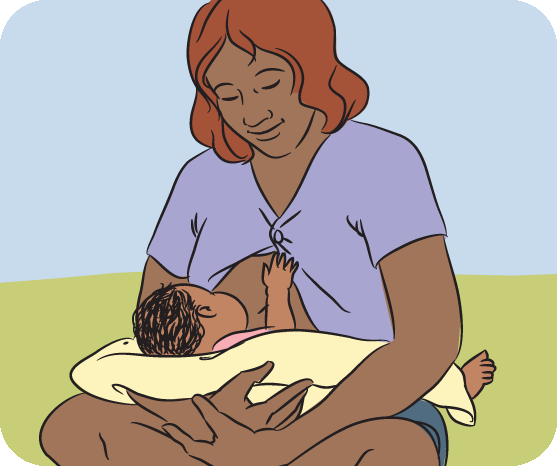
Here are some different breastfeeding positions you can try.
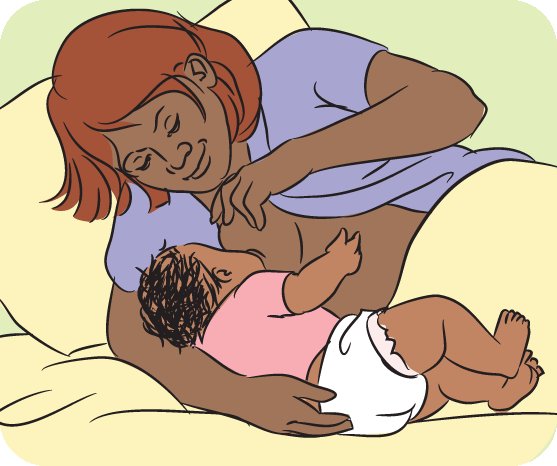
You can hold baby behind their back and shoulders but not their head.
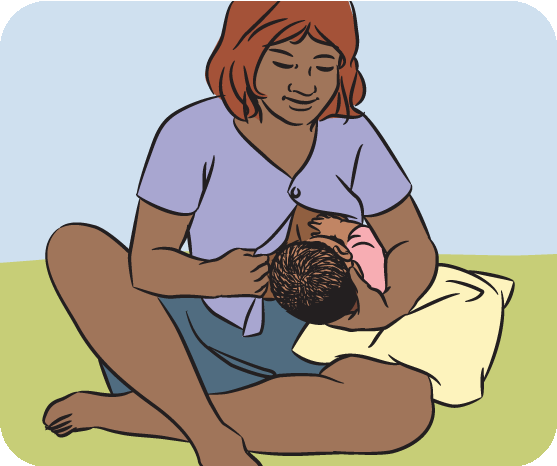
Choose a position that’s comfortable for you.
How to attach baby to your breast
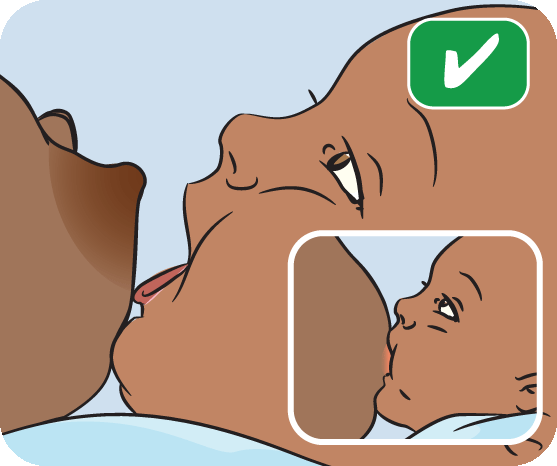
Let baby move towards your nipple. You can help by getting baby’s mouth close to your nipple.
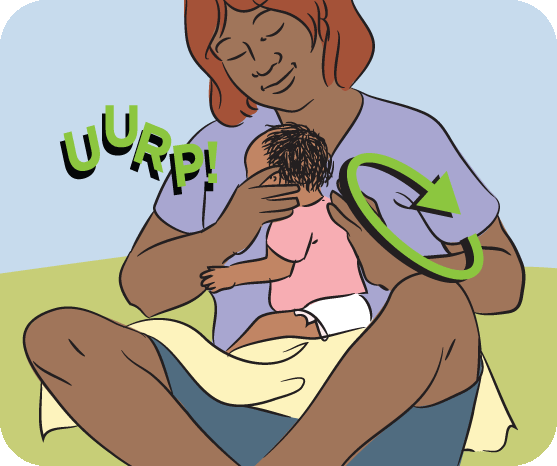
You can burp baby after feeding. Sit baby up, and gently rub their back. Babies don’t always need to burp after feeding.
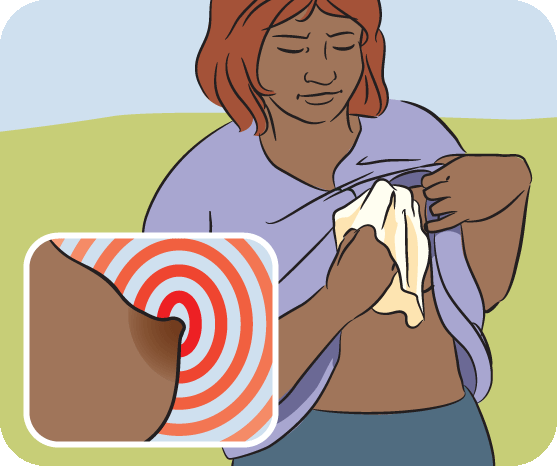
Massage sore breasts using a clean, warm and wet cloth. For sore nipples, squeeze breastmilk on them and dry them in the air. If the soreness doesn’t go away, see your local health centre.
Breastfeed on both breasts for each feed

Using both breasts helps to make sure breasts don’t get swollen or full. Using both breasts also helps baby get enough milk. If baby feeds from only one breast, swap breasts at the next feed.